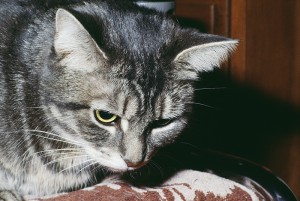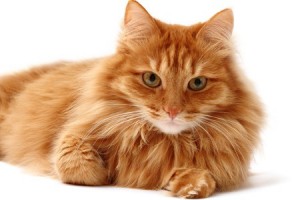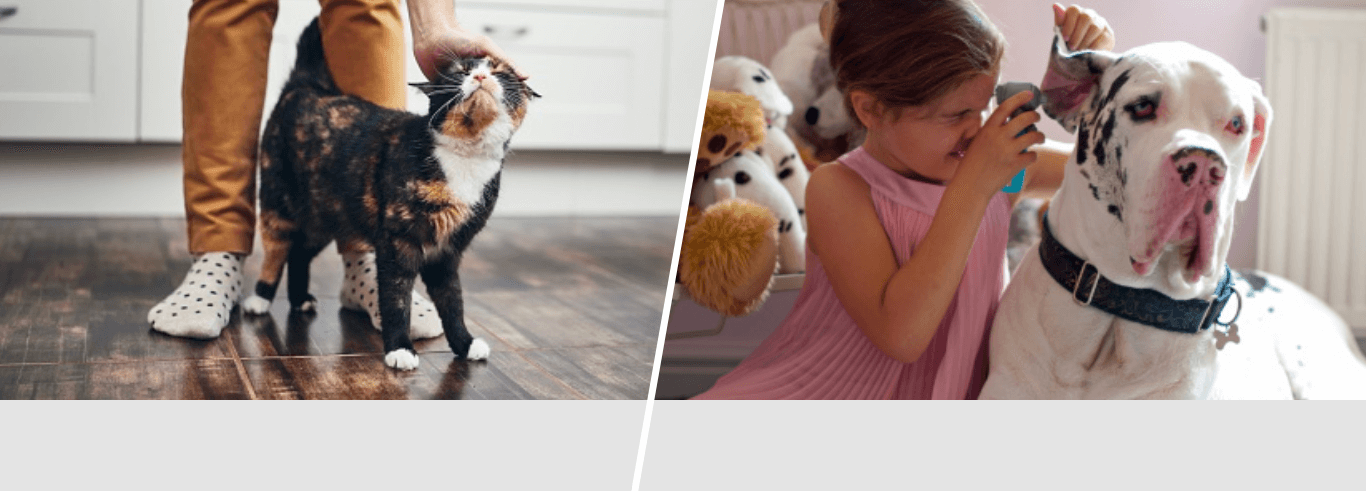Cat health: Feline enteritis explained
Many of us view our pets as part of the family and it is for this reason that we strive to keep on top of their health needs. When your cat becomes poorly, it’s important to spot the tell-tale signs as soon as possible and understand what condition our pet could have. Here we uncover everything you need to know about the clinical disease, feline enteritis.
What Is Feline Enteritis?
Feline enteritis, or feline infections enteritis (FIE), is a severe infection of the gut which occurs in cats. It is often fatal and is highly contagious – making it a particular threat for households with more than one cat. Death rates from the disease are high and typically the condition can escalate to a life-threatening stage in as little as 12 hours from the first sign of illness.
How is Feline Enteritis Caused?
Feline infectious enteritis is caused by the feline parvovirus (FPV) which is also known as the feline panleukopenia virus. Cats infected with FPV can spread the virus for over 6 weeks following infection through faecal-oral contact or contamination of surrounding objects such as bedding, clothing, food bowls and more.
In adult cats and kittens over 4 weeks, it causes severe dehydration, vomiting and diarrhoea, but in younger kittens the effects are even more devastating. The virus can affect the developing brain of kittens under 4 weeks old and leave them heavily uncoordinated. This also applies to kittens which are yet to be born if their pregnant mother is infected. The kittens will look normal at birth, however they will be very uncoordinated due to brain damage.
Feline enteritis may also be called a number of other names, such as:
- Feline infectious enteritis
- Feline distemper
- Feline panleukopenia
- Feline ataxia
- Cat plague
What are the Signs and Symptoms of Feline Enteritis?
There are a few clinical signs to be aware of that indicate your cat may have the infection. Symptoms of feline enteritis include:
- Severe and sudden onset of gastroenteritis
- Vomit or diarrhoea where blood is present
- Lethargy in kittens and cats over 3-4 weeks old
- Sudden loss of appetite/stopped eating
- High fever
- Dehydration
- Uncharacteristic hiding
- Depression
- Loss of coordination
Due to the quick development of the condition, it is important that you seek veterinary treatment immediately if you spot any of these symptoms.
Can Feline Enteritis Be Treated?
Unfortunately, there is no specific course of feline enteritis treatment and often the symptoms escalate so quickly that little can be done. Should your cat suffer from feline enteritis, it is vital that you seek veterinary treatment immediately. Antibiotics for secondary infection, anti-vomiting drugs and fluids may be administered to support the affected individual while their body fights the virus. Sadly, even with treatment the disease is very often fatal.
How Can I Stop Feline Enteritis Spreading to My Cat?
As mentioned, feline enteritis is highly contagious. This means that you need to do everything you can to protect your cats and stop it from spreading. A vaccination against the infection is available and is one of the core vaccinations administered to cats, it is highly effective and suitable for all types of cats – including indoor cats. Therefore, having kittens vaccinated is the most obvious step but there are other things you can do too. Another important way to treat the infection is through preventative measures.
Cats are infected via the mouth or nose by exposure to infected animals, their faeces (the most common route), secretions or indirectly from the environment. It’s therefore important to keep litter trays cleaned and emptied regularly.
Poorly cleaned floors, dirty food dishes, brushes, combs, toys and beddings can also be responsible for spreading the virus – as can dirty hands or clothes. Good cleaning practices around the home are therefore a vital form of protection, and you should wash your hands thoroughly after handling cats.
The virus persists for extended periods in the environment and must be destroyed with specific disinfectants. Any outbreaks of infection should result in isolation or quarantine for the infected cat.
Your cat’s health is important to look after so help keep yourself protected from vet bills with Argos Pet Insurance provided by Pinnacle Insurance Ltd. Explore our cat insurance policies today.
 Sorry, our lines are now closed
Sorry, our lines are now closed





